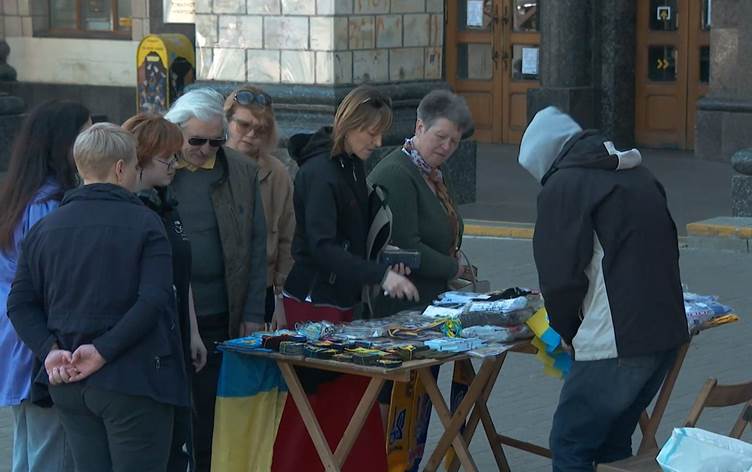KYIV, Ukraine - As Russia's focus shifts to the southern and eastern parts of Ukraine, following the retreat of their troops from the Kyiv oblast, life is slowly returning to the streets of the county’s capital.
Increasing numbers of people are seen on the streets of Kyiv as shops, restaurants, cafes, and stores, among dozens of further businesses, have reopened and resumed work.
“It’s getting back to normal… it’s getting better,” Feydir Sydork, a resident of Kyiv, told Rudaw's Dlnia Rahman on Tuesday.
“People were very afraid of the ninth of May, which is the Russian Day… and everyone was afraid that Putin might make some kind of announcement about things getting worse or send us a new salute with missiles,” he added. “But it was okay, only Odessa was hit.”
Public transport, including subway interchanges, is once again up and running, with fewer emergency sirens being heard. Though schools remain closed, students and pupils are taught remotely.
According to the Kyiv-based Rasumkov Centre for Economic and Political Studies, 79 percent of Ukrainians who have fled their country are keen to return to their homes.
Ukrainian officials have repeatedly accused Russia of killing hundreds of civilians around Kyiv. Moscow has denied the allegations.
The United Nations estimates that at least 2,899 civilians have been killed and 3,235 injured across Ukraine since the war began in February.
Over 13 million people have been uprooted by Russia’s invasion of Ukraine. War rages on in eastern and southern Ukraine.
Since Russia began its war in Ukraine on February 24, more than 180 buildings and 44 schools have been destroyed or damaged in Kyiv alone, according to the Ukrainian government.
Cameraman: Ahmed Younus








Comments
Rudaw moderates all comments submitted on our website. We welcome comments which are relevant to the article and encourage further discussion about the issues that matter to you. We also welcome constructive criticism about Rudaw.
To be approved for publication, however, your comments must meet our community guidelines.
We will not tolerate the following: profanity, threats, personal attacks, vulgarity, abuse (such as sexism, racism, homophobia or xenophobia), or commercial or personal promotion.
Comments that do not meet our guidelines will be rejected. Comments are not edited – they are either approved or rejected.
Post a comment